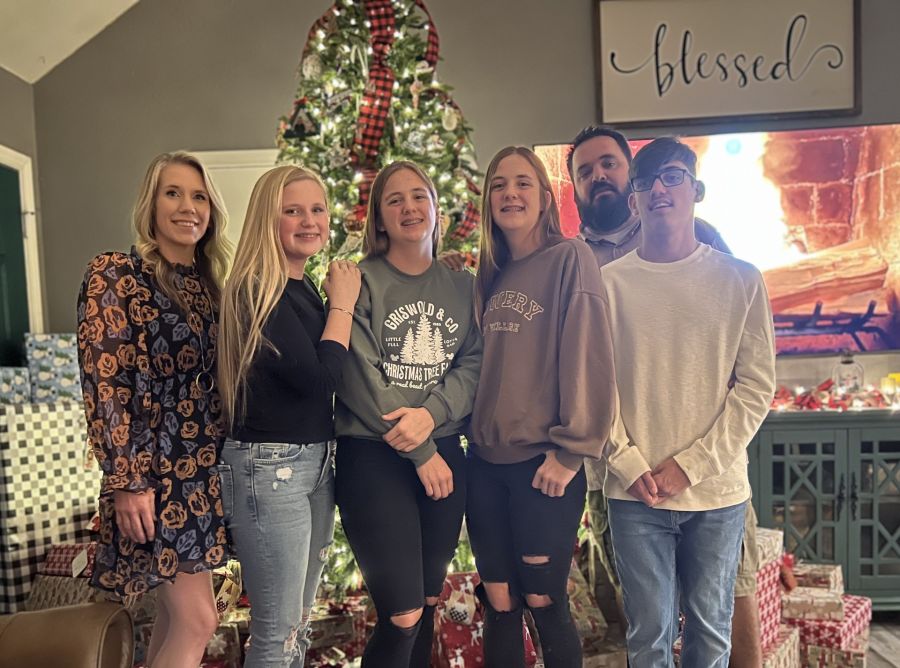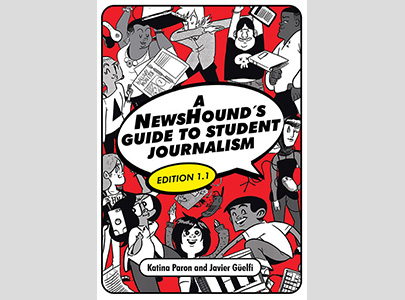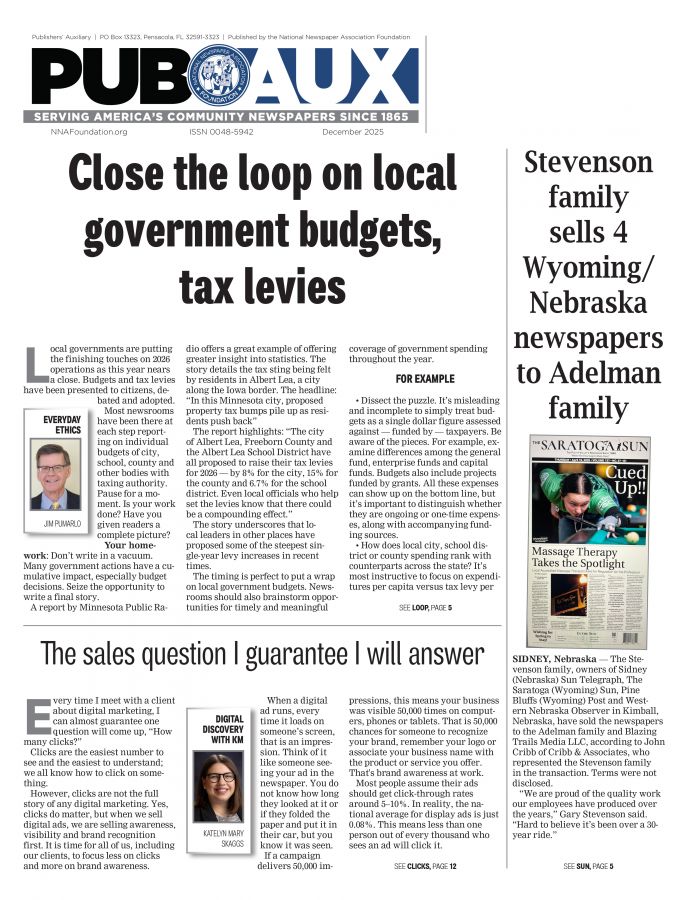UK students have the assignment of a lifetime covering governor’s race for The State Journal
Teri Saylor
Special to Publishers' Auxiliary
Apr 1, 2020
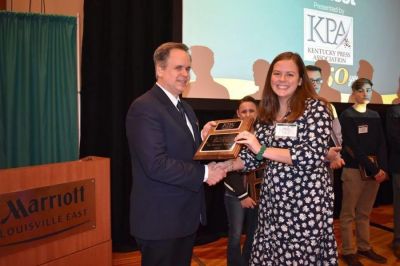
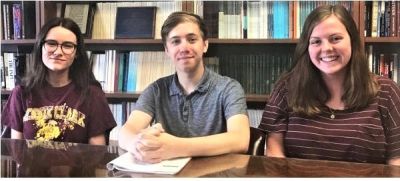
Covering a governor’s race is challenging enough for full–time reporters, but when those reporters juggle college classes and studying for exams along with reporting breaking election news, only the strong survive. Bailey Vandiver proved she has what it takes to not just survive but to thrive in that environment.
When the University of Kentucky embarked on a partnership with The State Journal of Frankfort to cover the 2019 gubernatorial election, Vandiver, a senior, jumped at the chance and joined a team of three students selected for the assignment. She had already served as editor-in-chief of the UK’s Kentucky Kernal newspaper and was accustomed to late nights and long hours of work while keeping her grades up.
But covering a major election, including debates, was entirely different. The debate schedules didn’t always mesh with college schedules, and sometimes travel was involved. Each student covered two debates in person and others via live feeds.
“Overall, the assignment was a positive experience, but it was very challenging,” she said in a phone interview. “We still had to maintain attendance in our classes, and we had homework on the same nights as some of the debates.”
The student reporting project was born out of a partnership between the University of Kentucky’s Institute for Rural Journalism and Community Issues and The State Journal in Frankfort. It was an idea that had been percolating in publisher Steve Stewart’s mind for several years.
With a population of just over 27,000, Frankfort is the fourth smallest capital city in the United States. The State Journal has a paid circulation of 5,500 and is at its heart, a small-town newspaper.
The 120-year-old State Journal is a descendant of The Kentucky State Journal, established in 1900. It is now part of the Boone Newspaper family. In addition to his position as State Journal publisher, Stewart is also a senior vice president with Boone Newspapers.
In an age of cutbacks in local reporting, state government news has gone lacking in many places, and it’s no different in Kentucky. Stewart admits he has his hands full just covering local government and the school system.
He describes the State Journal’s coverage as hyperlocal with some state government news, but he has been eager to do much more. “I have long grappled with the question of how a local community newspaper provides meaningful coverage of state government,” he said in a phone interview. “Many of our readers are state government employees and retirees, and they have a strong appetite for capitol reporting.”
At the Institute for Rural Journalism and Community Issues, director Al Cross thought he could lend a hand and help expand The State Journal’s coverage.
“The State Journal is a community newspaper that tries to cover state government, which is the town’s largest employer,” Cross said in a phone call. “Steve saw an opportunity to serve the public by having us help provide state government news, and we are happy to fill that gap.”
Cross and Stewart teamed up to create a trifecta of opportunity — a program that would help journalism students get real–world reporting experience, help a small newspaper expand its news coverage and help a strong community readership get the news and information they need.
They launched a pilot program during the fall 2019 semester, targeting junior and senior journalism students and focusing on the state’s gubernatorial race. The dean of UK’s School of Communications approved the program for course credit, while Stewart and Cross selected three student reporters to participate.
Vandiver was one of them.
“We met twice with our editors, once in the spring and again in August when the semester started,” Vandiver said. “We each had a chance to cover topics that interested us, and I focused on religion and politics.”
All parties came to the table with story ideas. The students were encouraged to pitch ideas, while taking assignments from the editorial team, which consisted of Stewart, Cross and Chanda Veno, The State Journal’s managing editor.
“We didn’t provide equipment. The students wrote their stories on their phones or tablets,” Stewart said. “They operated like freelancers, communicating through email and uploading their stories on our content management system, which is in the cloud.”
The campus is about a 30–minute drive from Frankfort, and the newspaper didn’t pay for mileage, unless the students were required to drive a longer distance to get their stories.
The students’ work often landed in the inboxes of all three editors, and usually Cross was on the front line to do the first read. Then either Stewart or Veno did the final edit.
“All three of us took pitches from the students, too, and Al usually stepped in to talk through their ideas, if needed,” Stewart said. “Having Al was like having a third editor on staff. He brought a lot of institutional knowledge to the program and is a great line editor, too.”
For Vandiver, it was stressful at times, and she often felt the weight of campaign coverage on her young shoulders.
“It was a big thing for us, as college students, to cover the election,” she said. “Frankfort is a small town, and we were the only team covering the election. There were no other State Journal reporters on it.”
She also learned the rigors of fast-paced daily reporting.
“We knew we had a big responsibility to report the facts accurately and to be a credible source for readers,” she said. “But it was tough to do fact checking on the fly. Some of the debates didn’t start until 8 p.m. and our deadline was at 10:15, so it was very challenging.”
After the students’ stories ran in The State Journal, they were distributed to other newspapers through the Kentucky Press Association’s news service. Stewart views the pilot program’s success as an opportunity to build a sustainable structure that could carry over for years to come and be of great value to the state’s newspapers.
“This filled a void in our news coverage,” he said. “We don’t have a state government reporter, and readers seemed to appreciate it.”
Before starting her term as a campaign reporter, Vandiver had her eye on becoming a political reporter. While she is not as sure about her career path now, she is as passionate as ever about journalism. As a young woman, she values the traditional newspaper and has a collection of antique typewriters. She also knows the landscape is changing, but the need for news will continue.
“People will always need stories and information, and we as journalists will continue to hold onto our core principles upholding our ethics and telling great stories,” she said.
Teri Saylor can be contacted at terisaylor@hotmail.com.


